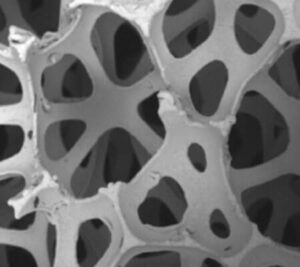Open Cell vs Closed Cell Foam Tape: Which Should I Choose?
2021/07/28

Foam is foamed by high polymer and can be divided into open cell foam and closed cell foam. The idea of adding foam to polymers was first proposed by the Massachusetts Institute of Technology in 1980, the invention at the time was to reduce the extensive use of polymers in food and packaging.
| Cell Size (μm) | Cell Density (cells/cm3) | |
|---|---|---|
| Common Cell Size | >300 | 106 |
| Tiny Cell Size | 10~300 | 106~109 |
| Micro Cell Size | 0.1~10 | 109~1015 |
| Nano Cell Size | <0.1 | >1015 |
The foam cells of the open cell foam pass through each other. Its unique three-dimensional open-cell structure has the following characteristics:

- Cushioning: When the foam material is impacted, the air staying in the cells is compressed, so that the external energy is consumed and the impact load is gradually reduced.
- Sound Absorption: The propagation of sound waves in the foam is mainly eliminated by “viscous inertia and thermal damping”. Through the control and optimization of the cell structure, the sound absorption performance of the foam material can be well improved.
- Liquid Absorption: open cell structure, larger surface area, high adsorption rate, and repeatable absorption performance.
- Thermal Insulation: Open cell foam is filled with air, so the thermal conductivity is much lower than that of solid; The vacuum insulation board is made of open cell foam as the main body. Since there is no medium for heat conduction, it has more heat preservation and heat insulation effects.
Open cell foam allows liquid, air, and sound to flow through the material and can be used as sound-absorbing material, petroleum adsorption material, wastewater or sewage treatment material, optical material, biomedical material, conductive material, filter membrane material, etc.
The cells of closed cell foam are closed structures, and the cells do not pass through each other. It is like the air cells are tightly stacked together. Particles, liquids, and air do not penetrate into the interior of the foam. Closed cell foam has the following properties.

- Closed cell foam has close-packed cells, more rigid, and can withstand greater pressure.
- It is difficult for water, vapor and air to penetrate the closed-cell foam, which can isolate water vapor and has good waterproof and sound insulation effects.
Closed-cell foams are generally used as insulation, packaging and padding, thermal insulation, shock absorption, athletic insole, buoyancy components.
If you want good breathability, softness, ductility, cushioning, shock absorption and sound absorption, choose open cell foam tape. If the requirement is lightweight, cushioning, shock absorption, waterproofing, blocking vapor penetration, thermal insulation, sound insulation, then please use closed cell foam tape.
If you have other needs, we have a professional team to help you choose the right material for your product.
Category
